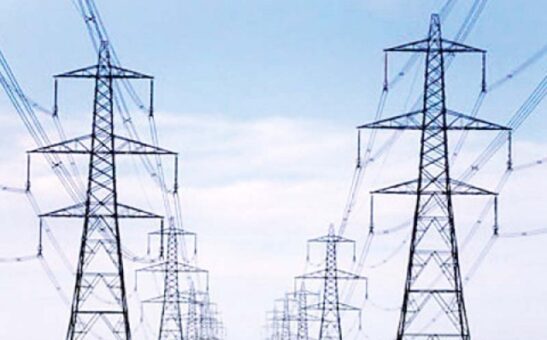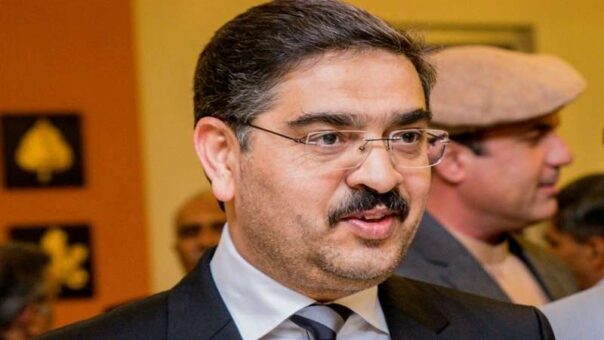Islamabad, September 7, 2023 – Pakistan has announced a sweeping crackdown against electricity theft, aimed at improving revenue recovery and providing relief to the general public.
(more…)Tag: electricity
-

Karachi Traders Stage Shutdown Protest Against Soaring Electricity Bills and Inflation
Karachi, September 1, 2023 – Traders in Karachi observed a citywide shutdown on Friday in a collective protest against inflated electricity bills and the relentless rise in inflation. The protest action resulted in the closure of wholesale and major markets across the city.
(more…) -

FBR Assures Traders of Easing Tax Burden on Electricity Bills
Karachi, September 1, 2023 – The Federal Board of Revenue (FBR) has reaffirmed its commitment to ease the tax burden on electricity bills, addressing the concerns of the business community in Karachi and fostering a cooperative relationship with traders.
(more…) -

Federal Cabinet Set to Announce Relief in Inflated Electricity Bills
Islamabad, August 28, 2023 – The federal cabinet of Pakistan’s caretaker government is poised to take action to alleviate the burden of inflated electricity bills in a meeting scheduled for August 29, 2023.
(more…) -

Prime Minister Orders Swift Plan to Reduce High Electricity Bills
In a determined effort to tackle the mounting issue of excessive electricity bills, Caretaker Prime Minister Anwaar-ul-Haq Kakar has taken charge by demanding a comprehensive plan featuring tangible steps to rationalize power tariffs.
(more…) -

Pakistan Unveils New Withholding Tax Rates on Electricity Bills
Karachi, August 27, 2023 – In a bid to streamline its tax system and encourage responsible energy consumption, the Federal Board of Revenue (FBR) of Pakistan has unveiled revised withholding tax rates on electricity bills for the fiscal year 2023-24.
(more…) -

Latest Tax Rates for Electricity Consumption in FY 2023-24
Karachi, August 6, 2023 – The Federal Board of Revenue (FBR) has announced the latest tax rates for electricity consumption for the fiscal year 2023-24.
(more…) -

Electricity withholding tax not applicable on ATL domestic consumers
Domestic consumers of electricity are not subject to withholding income tax if their names are in the Active Taxpayers List (ATL).
The Federal Board of Revenue (FBR) has issued updated withholding tax card 2022-2023 after incorporating amendments made through Finance Act, 2022 to the Income Tax Ordinance, 2001.
READ MORE: Tax rates on goods, passenger transport vehicles during 2022-2023
The FBR collects withholding tax on the electricity consumption under Section 235 of the Income Tax Ordinance, 2001.
Following are the withholding tax rates and text of the Section 235:
WITHHOLDING TAX RATES ON ELECTRICITY
For commercial and industrial consumers:
1. There will be no tax on gross amount of bill up to Rs500
2. The rate of withholding tax shall be Rs10 per cent of the amount where gross amount of bill exceeds Rs500 but does not exceed Rs20,000.
READ MORE: FBR notifies tax rates on brokerage, commission during 2022-2023
3. The tax shall be Rs1950 plus 12 per cent of the amount exceeding Rs20,000 for commercial consumers. Rs1,950 plus 5 per cent of amount exceeding Rs20,000 for industrial consumers where gross amount of bill exceeds Rs20,000.
For domestic consumers: (The tax is applicable on person not appearing on ATL)
The rate of tax to be collected on domestic electricity consumption shall be: (i) zero percent the amount of monthly bill is less than Rs. 25,000; and (ii) 7.5 per cent if the amount of monthly bill is Rs. 25,000 or more.
READ MORE: Non-ATL to pay 200% more tax on motor vehicle purchase during 2022-2023
Section 235. Electricity consumption
(1) There shall be collected advance tax at the rates specified in Division IV of Part-IV of the First Schedule on the amount of electricity bill of a commercial or industrial or domestic consumer:
Provided that the provisions of sub-section (1) shall not apply to a domestic consumer of electricity if his name appears on the Active Taxpayers’ List.
(1A) In addition to tax collectible under sub-section (1), there shall be collected tax at the rates given in the Division IV of Part IV of First Schedule from retailers and service providers as provided under section 99A of the Ordinance:
Provided that the tax shall not be collectible under this sub-section if the tax has been collected from the person under sub-section (9) of section 3 of the Sales Tax Act, 1990 as provided in the general order issued under section 99A of the Ordinance.
READ MORE: FBR notifies tax rates on prize bond, lottery winning during 2022-2023
(2) The person preparing electricity consumption bill shall charge advance tax under sub-section (1) in the manner electricity consumption charges are charged.
Explanation.— For removal of doubt, it is clarified that for the purposes of this section electricity consumption bill referred to in sub-section (2) means electricity bill inclusive of sales tax and all incidental charges.
(3) Advance tax under this section shall not be collected from a person who produces a certificate from the Commissioner that his income during tax year is exempt from tax or that he has discharged advance tax liability under section 147 or whose entire income is subject to final tax regime or minimum tax regime under any provisions of this Ordinance other than this section.
READ MORE: Tax rates for rental income from immovable property during 2022-2023
(4) Under this section, —
(a) in the case of a taxpayer other than a company, tax collected upto bill amount of three hundred and sixty thousand Rupees per annum shall be treated as minimum tax on the income of such persons and no refund shall be allowed;
(b) in the case of a taxpayer other than a company, tax collected on monthly bill over and above thirty thousand rupees per month shall be adjustable; and
(c) in the case of a company, tax collected shall be adjustable against tax liability.
-

Date extension demanded for electricity bills payment
Karachi Chamber of Commerce and Industry (KCCI) on Monday demanded the authorities to extend the last date for payment of electricity bills across Pakistan as in the ongoing extraordinary situation, neither the business and industrial community nor the poor masses were in a position to pay their bills.
Keeping in view the hardships being faced by the citizens and business and industrial community of Pakistan due to massive flashfloods, KCCI President Muhammad Idrees has appealed Prime Minister Shehbaz Sharif to issue directives for extension of last date for payment of electricity bills for entire Pakistan as in the ongoing extraordinary situation, neither the business and industrial community nor the poor masses were in a position to pay their bills.
READ MORE: Power tariff hike termed disaster for industries
In a letter sent to Prime Minister, President KCCI further requested to refrain DISCOs from charging FAC whereas the controversial Fixed Charges which are neither in favor of the industry nor the economy must also be withdrawn as soon as possible which would be widely welcomed by the entire business & industrial community of Pakistan.
He pointed out that as the entire country is suffering badly because of massive flashfloods triggered by this year’s torrential rainfalls of Monsson Season, the business & industrial community across Pakistan is facing severe liquidity crunch as all the receivables have been pending due to ongoing extraordinary situation wherein the entire Pakistan remains totally sunk.
READ MORE: Industry slams finance ministry for blocking letter of credit
“Keeping in view the hardships being faced by the citizens and the business & Industrial community, some leniency would have been exhibited but unfortunately, this was not witnessed at any stage and regardless of taking the ground realities into consideration, electricity tariffs for all DISCOs and KE have been raised by more than 100 percent which are totally unabsorbable for the industries and unaffordable for the poor masses,” he noted.
“Secondly, the issue of exorbitant Fuel Adjustment Charges (FAC) and Fixed Charges also stand unresolved which, we firmly believe, need to be reviewed and withdrawn at the earliest as these are neither in favor of the industries nor the economy,” he added.
READ MORE: Clearance of banned cars, phones allowed on 100% surcharge
He hoped that Prime Minister would instantly consider KCCI’s request and accordingly instruct relevant Ministry/ departments to provide relief otherwise, many industries, which are already at the verge of collapse, would close down forever which would trigger massive unemployment, chaos and other economic issues.
READ MORE: Pakistan lifts ban on import of cars, phones, luxury items
-

Inquiry ordered into collection of increased sales tax ratio
The government on Sunday ordered an inquiry into the collection of sales tax at increased rates from retailers. Prime Minister Muhammad Shehbaz Sharif directed the investigation, focusing on the imposition of a higher sales tax ratio on small traders through electricity bills, which exceeded the agreed-upon rate.
(more…)